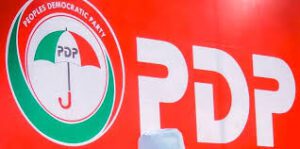


APC: Tinubu implementing bold, far-reaching reforms
The All Progressives Congress (APC) says President Bola Tinubu is implementing bold and far-reaching reforms necessary for the nation’s economic recovery, sustainable growth and prosperity.
Mr Felix Morka, the party’s National Publicity Secretary, said this in a statement on Sunday in Abuja.
He was reacting to the Peoples Democratic Party (PDP) governor’s advise to Tinubu to throw in the towel in the face of the hardships experienced by Nigerians.
“A federal system like ours, operates on the idea of shared, constitutionally delineated responsibilities among the three tiers of government: Federal, State and Local Governments.
“Effective governance requires collaboration and coordination among all three levels to deliver the dividends of democracy to citizens.
“By virtue of their membership of the National Economic Council and National Council of State, governors bear a solemn duty to proffer constructive ideas and solutions to the challenges of governance,” Morka said.
He said that like all citizens, governors were entitled to free speech, adding that such rights must be exercised responsibly.
He stressed that reckless utterances capable of inflaming passions and social upheaval must be avoided.
He said comparing Nigeria to Venezuela, even under the prevailing challenging economic and security contexts of Nigeria, smacks of righteous indignation.
Morka noted that rather than live up to their responsibilities as chief executive of their states, the PDP governors had turned themselves into a band of doomsday vocalists.
This, he said , they were doing by raising their voices “to deafening decibels intended to drown the groans of their citizens battered by their critical inertia, ineptitude and dismal performance”.
The APC spokesman said that the PDP governors’ call to Tinubu to throw in the towel was, therefore, nothing short of self-indictment.
He said it was embarrassing that the same PDP governors that had never justified the recent massive federal allocations to their states, were buck passing.
Morka added that since the buck passing also stopped at the PDP governors’ table at the state levels, they should practice what they preached by resigning from their offices.
This, he said, they should do rather than blaming the federal government for their failure to mobilise massive resources at their disposal to improve the living conditions of the people.
Morka said in spite of the country ‘s challenges, Tinubu was taking responsibility and providing leadership in this historic season of deep and enduring economic transformation in the country.
“Our people are going through transient but painful difficulties that the administration is supremely determined to mitigate as these policies begin to yield desired results.
“Nigerians deserve to live in peace and security, with access to basic social and economic amenities.
“Our party urges patience during these turbulent times as our nation soars unstoppably to firmer grounds and more prosperous future,” Morka said.



